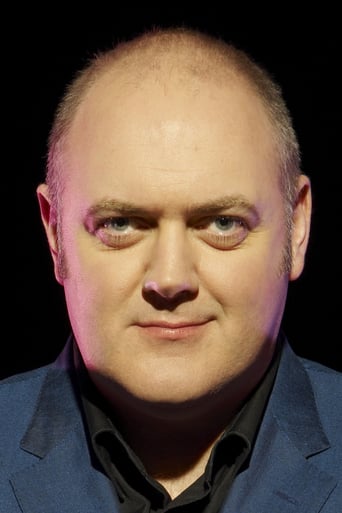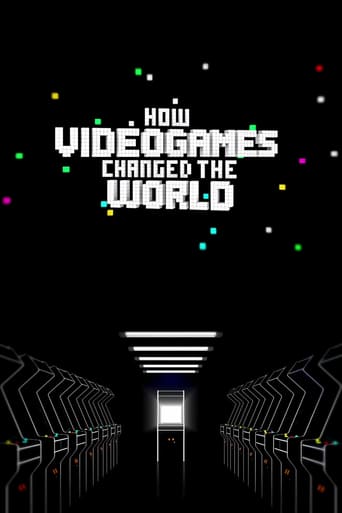
From Pong to Grand Theft Auto, Charlie Brooker delves into the history of videogames and pulls out a selection of its most significant titles. From Atari to Angry Birds, How Videogames Changed the World explores how interactive entertainment evolved from a penny arcade diversion into a medium that some believe is art, and shows how it is changing the way we work, communicate and, of course, play. Joined by Jonathan Ross, Dara O'Briain and gaming legends like Will Wright and John Romero, Brooker looks at how videogames have become the most progressive art form of the last 40 years. This humorous and insightful tour will surprise and entertain the uninitiated and dedicated gamers alike.
Similar titles
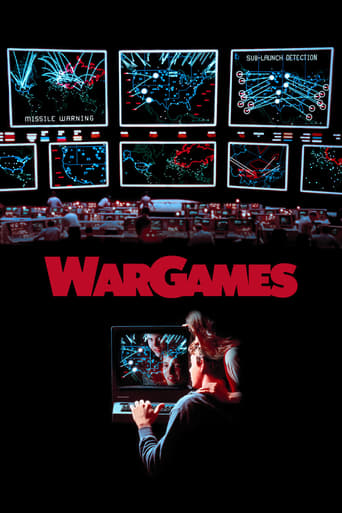
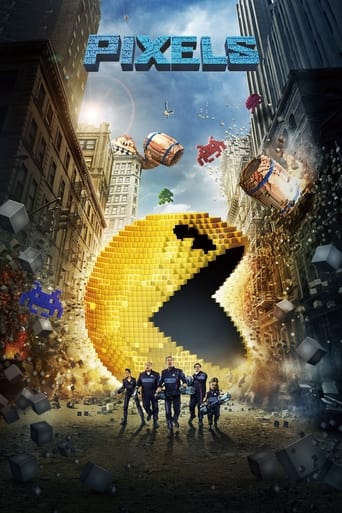
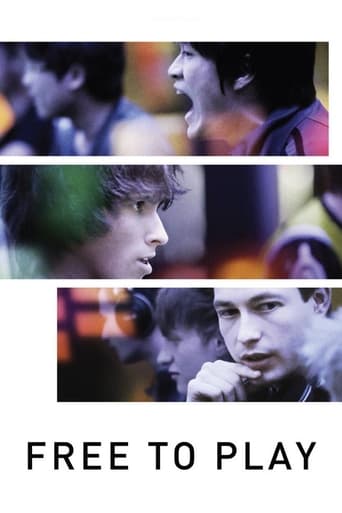

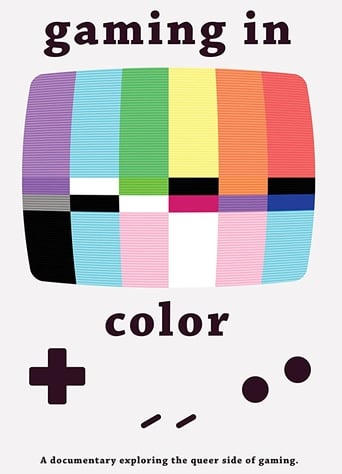


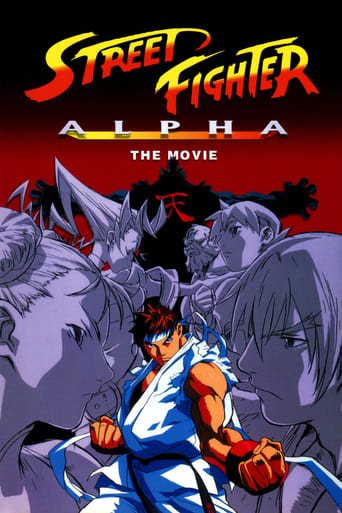
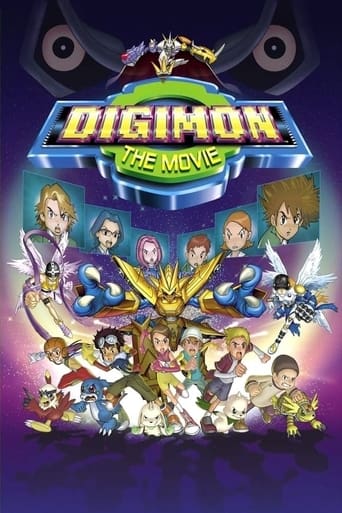
Reviews
Absolutely brilliant
A film with more than the usual spoiler issues. Talking about it in any detail feels akin to handing you a gift-wrapped present and saying, "I hope you like it -- It's a thriller about a diabolical secret experiment."
what a terribly boring film. I'm sorry but this is absolutely not deserving of best picture and will be forgotten quickly. Entertaining and engaging cinema? No. Nothing performances with flat faces and mistaking silence for subtlety.
Through painfully honest and emotional moments, the movie becomes irresistibly relatable
Video games are one of the most popular forms of home and arcade entertainment, so I was curious to see what this particular documentary would reveal about them, from it's beginnings to the present day and perhaps future, and I was hoping to have some nostalgia with mentions of games I have played. Hosted by Charlie Brooker, this programme is not a countdown programme as such, but it does list the twenty five most significant video games in the history of the medium, in terms of what games have been created, how the graphics and technology have evolved, and how playing games has changed. The twenty five games mentioned in the programme, chronologically listed by year, are: Pong – Atari, Inc., 1972; Space Invaders, Midway, Taito Corporation, 1978; Pacman, Midway, Namco, 1980; Manic Miner, Bug Byte Software, Matthew Smith, 1983; Elite, Acornsoft, David Braben and Ian Bell, 1984 (front cover illustration by Phillip Castle); Super Mario Bros., Nintendo, Nintendo R&D4, 1985; Tetris, Nintentdo, Bullet Proof Software/Nintendo, 1989; The Secret of Monkey Island, LucasArts, Lucasfilm Games, 1990; Street Fighter II, Capcom, 1991; Doom, GT interactive, id software, 1993 (Packaging ©Gold Medallion Software); Night Trap, Sega, Digital Pictures, 1992; Tomb Raider, Eidos Interactive, Core Design, 1996; PaRappa the Rapper, Sony Computer Entertainment, NanaOn-Sha, 1996; Starcraft, Blizzard Entertainment, 1998; The Sims, Electronic Arts, Maxis, 2000; Grand Theft Auto III, Rockstar Games, DMA Design, 2001; Shadow of the Colossus, Sony Computer Entertainment, Team Ico, 2005; World of Warcraft, Blizzard Entertainment, 2005; Wii Sports, Nintendo, Nintendo EAD Group No. 2, 2006; Call of Duty 4: Modern Warfare, Activision, Infinity War, 2007; Braid, Number None, Inc., 2008; Angry Birds, Chillingo, Rovio Entertainment, 2009; Minecraft, Mojang, 2011; The Last of Us, Sony Computer Entertainment, Naughty Dog, 2013 and Twitter, Twitter, Inc., 2006, that is apparently considered a game because of it's influence, the objective being to get the most views and followers. With contributions from Jonathan Ross, Jeff Minter (game designer, Tempest 2000; effects designer, Space Invaders Extreme), Keith Stuart (games editor, The Guardian), Peter Serafinowicz, Nolan Bushnell (co-founder, Atari), Allan Alcorn (designer, Pong), Tom Watson (MP, West Bromwich East), Peter Molyneux (games designer, Godus), Aoife Wilson (journalist, OXMUK), Rob Florence (writer and comedian), Kate Russell (technology reporter), Graham Linehan, Dara O'Briain (BAFTA Games Awards presenter), Gary Whitta (screenwriter, After Earth), David Braben (co-creator, Elite), Ellie Gibson (journalist, EuroGamer), Labrinth, Felicia Day (actress & filmmaker), Keza MacDoanld (games editor, IGN UK), Pete Donaldson (radio DJ), Bernie Goode (cyber-psychologist), Tim Schafer (co-writer & designer, The Secret of Monkey Island), Neil Druckman (game director, The Last of Us), Ron Gilbert (writer & designer, The Secret of Monkey Island), Susan Calman (comedian), John Romero (co-creator, Doom), Rhianna Pratchett – Terry's daughter (writer, Tomb Raider (2013)), Matt Lees (journalist, VideoGamer), Quintin Smith (journalist, EuroGamer), Malorie Blackman OBE (author & children's laureate), Vince Zampella (co- creator, COD: Modern Warfare). Other games and platforms mentioned (not all with clips) in the programme were Crash Bandicoot, Donkey Kong, The Legend of Zelda, Grand Theft Auto, Call of Duty, L.A. Noire, Beyond Two Souls, Tekken, Wolfenstein 3D, Mortal Kombat, Carmageddon, NRA: Practice Range, NRA: Varmint Hunter, Sniper Elite, Dead or Alive (5), Wipeout, Human Absolution, Battlefield 3, Mass Effect 3, Grand Theft Auto 5, The Adventures of Lomax, Soul Blade, Metal Slug. Guitar Hero, Rocksmith, Papers Please, Call of Duty: Ghosts, Trine 2, Limbo, Journey, Candy Crush, Playstation 4, Xbox One and Killzone. Topics regarding games included puzzles, first person, multi-player, CD ROM, violence, graphics, iconic characters, parental ratings, Playstation, Wii and Xbox Kinect. Very good!
It was Charlie Brooker's name as part of the title that drew me to this show because, even though I have been a gamer since Granny's Garden on the BBC Acorn at my primary school, the material wasn't enough to do it because I have seen too many average "list shows" from Channel 4. You know the ones – cheaply made because you pay for a few clips, get a lot of lower grade celebs to talk about them with wide-eyes and the rest is done by the viewer agreeing or disagreeing in their front rooms. I don't hate list shows, but Channel 4 seem to churn them out more than the subjects demand.I was hoping Brooker would be a positive influence here and mostly he is. His humor and style are very much present even if his time is reduced – this is a film I would have much rather seen him do on BBC4 since there he tends to be the whole show and the contributions are more selective than Jonathon Ross and British rapper Labrinth. So on this hand it is another list show but in fairness I got past this because the subject is intelligent, informed and respectful. The list that the show works its way down is not about what is best or not, but rather forms a history of games and gaming aesthetics within popular culture and in this way it engages rather than frustrates.This is the list: 25. Pong 24. Space Invaders 23. Pacman 22. Manic Miner 21. Elite 20. Super Mario Bros 19. Tetris 18. The Secret of Monkey Island 17. Street Fighter 2 16. Doom 15. Night Trap 14. Tomb Raider 13. PaRappa the Rappa 12. Starcraft 11. The Sims 10. Grand Theft Auto 3 9. Shadow of the Colossus 8. World of Warcraft 7. Wii Sports 6. Call of Duty: Modern Warfare 2 5. Braid 4. Angry Birds 3. Minecraft 2. The Last of Us 1. Twitter.There are many in there I played first time and many that I know about. All of them are discussed by those who appear to know and even the semi- celebs are generally sounding like they did play the games as opposed to reading a script. Each entry is also cleverly used to speak around the subject – so for example Tomb Raider brings up female role models in gaming while Braid brings up indie games and so on. This does several things, firstly it stops the complaining about things that don't make the list, mainly because one entry represents so many others (so GTA holds all of R* work) and secondly it puts it more in Brooker's discussion territory than Channel 4's list show territory and it is a better show for it.The picture is built really well – I know there are many who do not get gaming and I think the gradual discussion and finishing on Twitter helps put it in a bigger context really effectively. A superior list show thanks to the structure, commentary and typically acerbic presentation from Brooker.
Top Streaming Movies
















